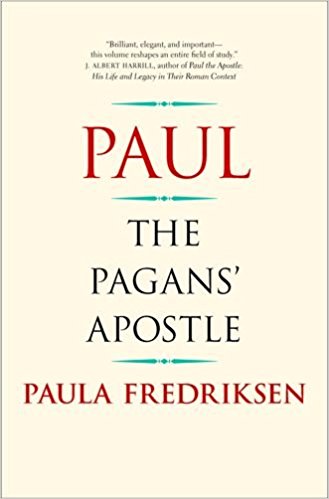Another of the remarkable, and likely untenable, arguments in this book is the contention that in Galatians, when Paul refers to persecution for not preaching circumcision, and also that the Judaizers were fearful of persecution for not preaching circumcision that the reference must be to Roman or other pagan authorities doing the persecuting (see p. 91). But Paul says that the circumcision party is the one that came from Jerusalem and is part of that church of God. Surely, they were more concerned about what their fellow Jews and Jewish followers of Jesus would say in Jerusalem if they did not insist on circumcision either for Jews or for proselytes to Judaism than they were concerned about what Pilate, for example would say.
The basic underlying problem here is the failure to take into account Paul’s regular preaching in synagogues, and the reaction to such preaching by Jews. Were the Roman authorities solely involved, we wouldn’t be hearing about both Paul’s being beaten by Roman rods, and flogging (more frequently) by synagogue authorities. That we hear of both is because both Jews and Gentiles are part of Paul’s evangelistic outreach, even though his focus is on recruiting Gentiles. It is also rather hard to believe that pagans who attended synagogue and came to be called God-fearers, got that name because they added one more deity on their list to worship. Did they cross their fingers when they recited the Shema? Was it really a matter of indifference in the Diaspora synagogues if a significant number of their regular attendees continued all their pagan religious practices? I doubt it. In any case, surely, the families of Gentiles who became proselytes to Judaism and submitted to circumcision, renouncing pagan gods, festivals and the like would have been no less irate with that outcome than if Gentiles became followers of Jesus, with or without circumcision and similarly renounced the gods of this world, turning from idols to the God of the Bible (see 1 Thess. 1).
Exclusive monotheism was the calling card of early Judaism that set it apart from other religions in the Empire, and in many ways it seemed appealing to pagans who no longer needed to worry about which deity to placate and which one to blame and which one sent them blessings. Belief in just one God simplified their lives immediately, and surely lower their anxieties about the wrath of numerous quixotic deities.
I doubt Paul got the notion that his converts had to turn from pagan deities and worship solely the God of Israel from a purely Christ-following context. Surely, this was a regular part of early Jewish praxis before there ever was a Christ follower movement. O.K., there may have been some Diaspora synagogues where there was no immediate insistence that pagans worship the God of Israel alone. But even pagans knew that the God of Israel wanted to be worshipped to the exclusion of other deities. Indeed, even knowing just the implications of the ten commandments and the Shema suggested this, never mind other Mosaic Laws.
The contention that Paul singularly was drawing pagans “away from their ancestral practices, something that the synagogues with their God-fearers had never done” (p. 92) is not merely hard to believe, it seems to fly in the face of what evidence we have. Are we really to believe that the synagogue rulers were flogging Paul for turning outright pagans to the exclusive worship of the God of Israel? This stretches credulity past the breaking point. Roman officials might well be very upset about such conversions and be led to take action against Paul. Synagogue rulers would have been upset with Paul for converting the likes of a Crispus or a Sosthenes and other former members and even leaders in the synagogue to the following of Christ.

















